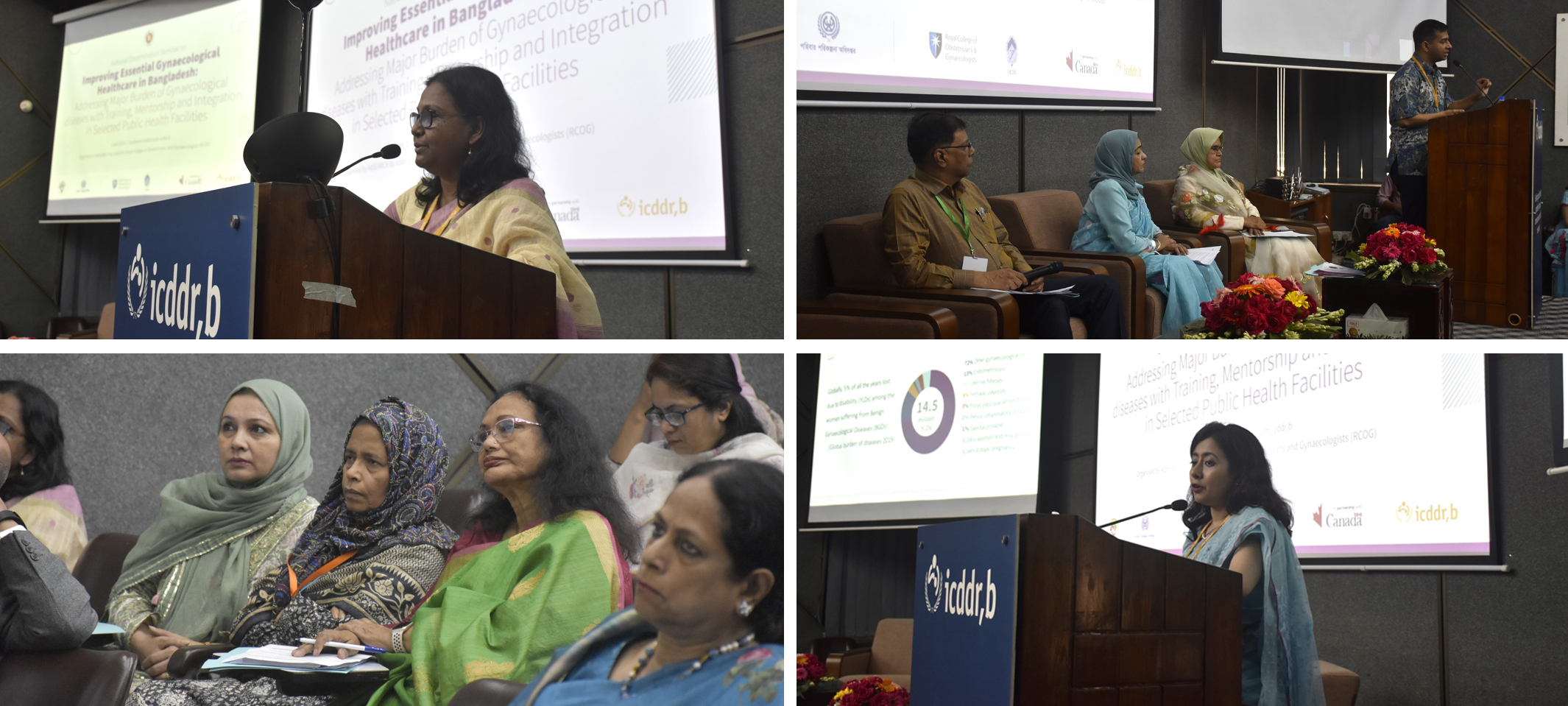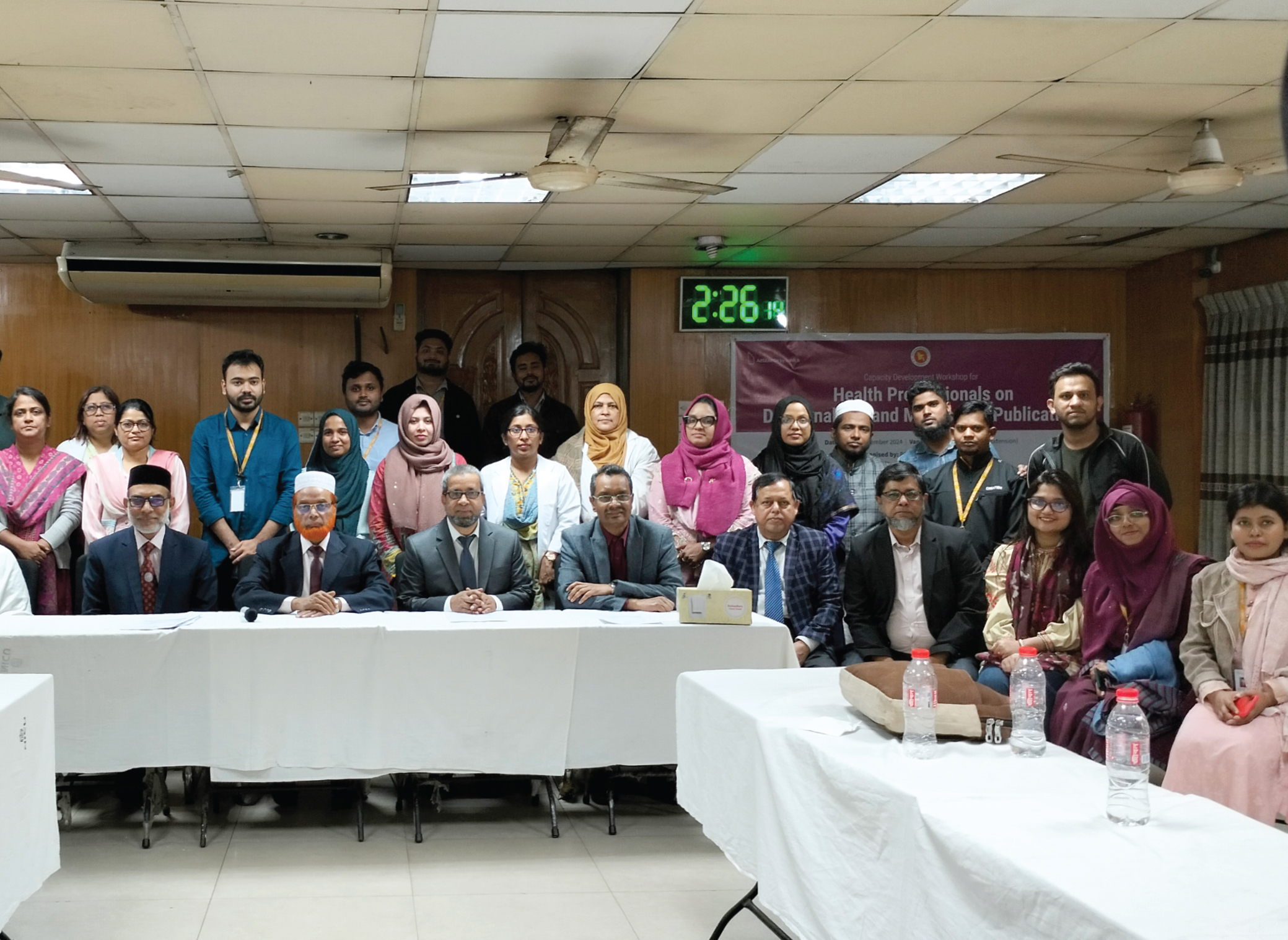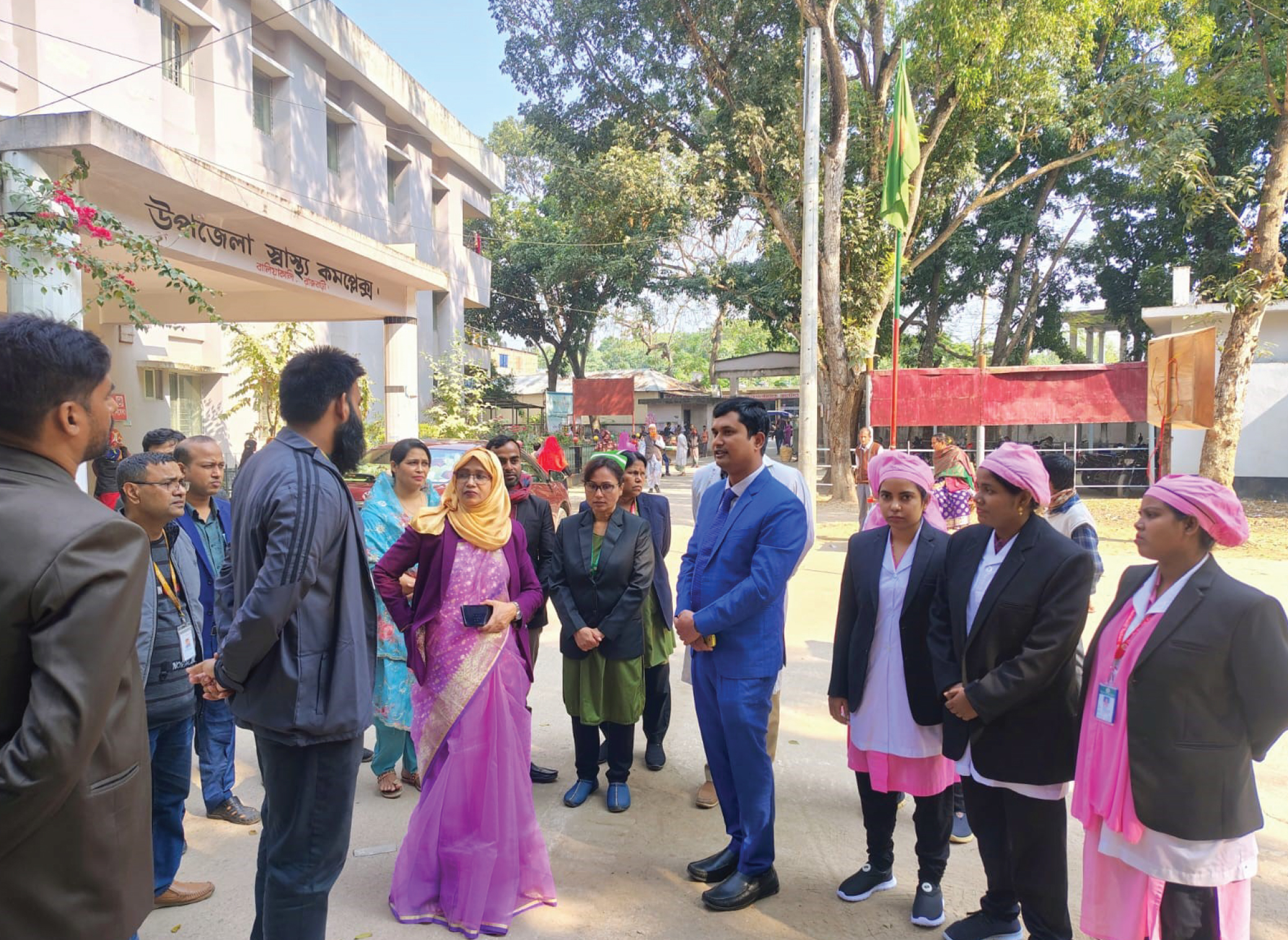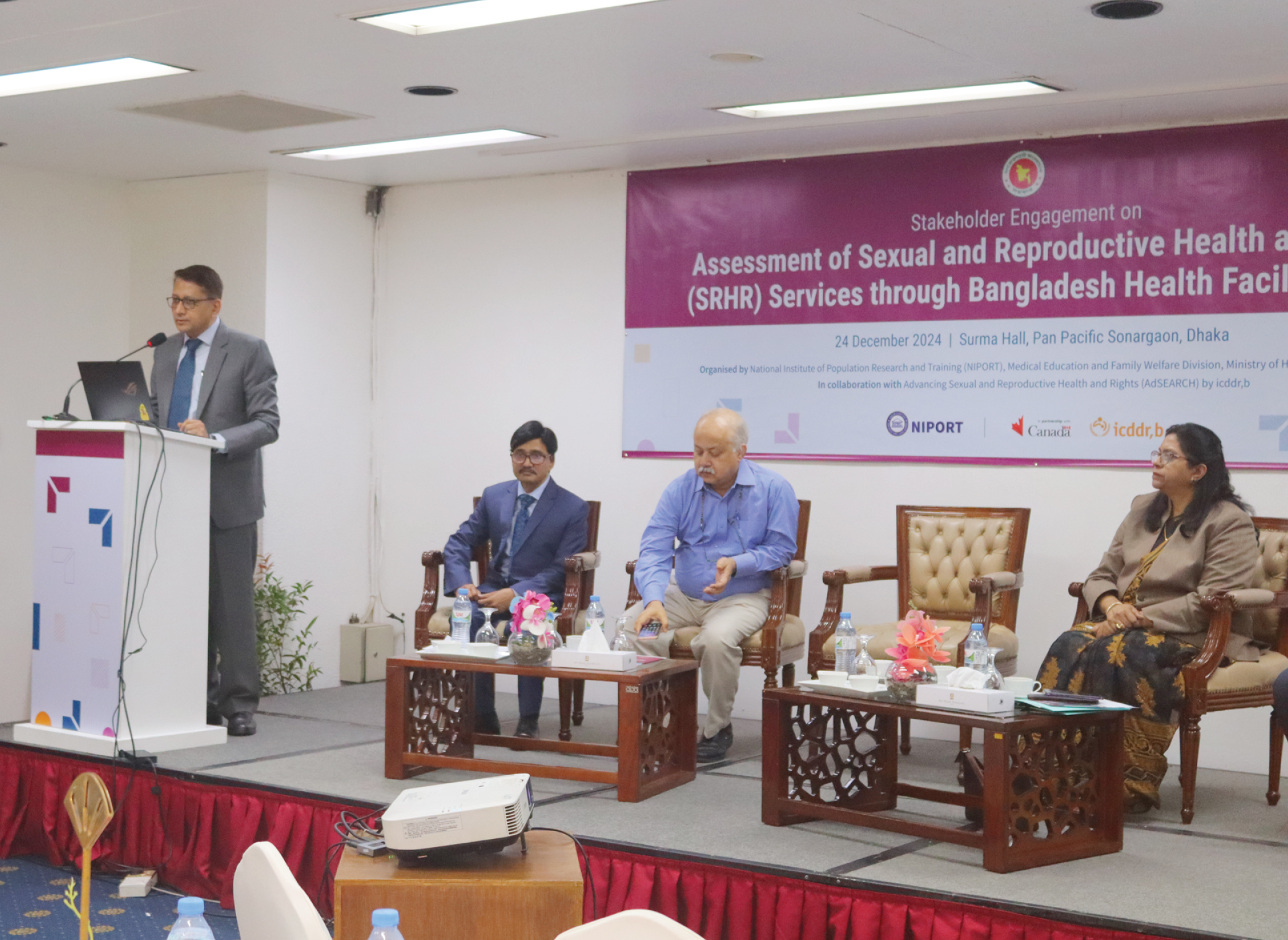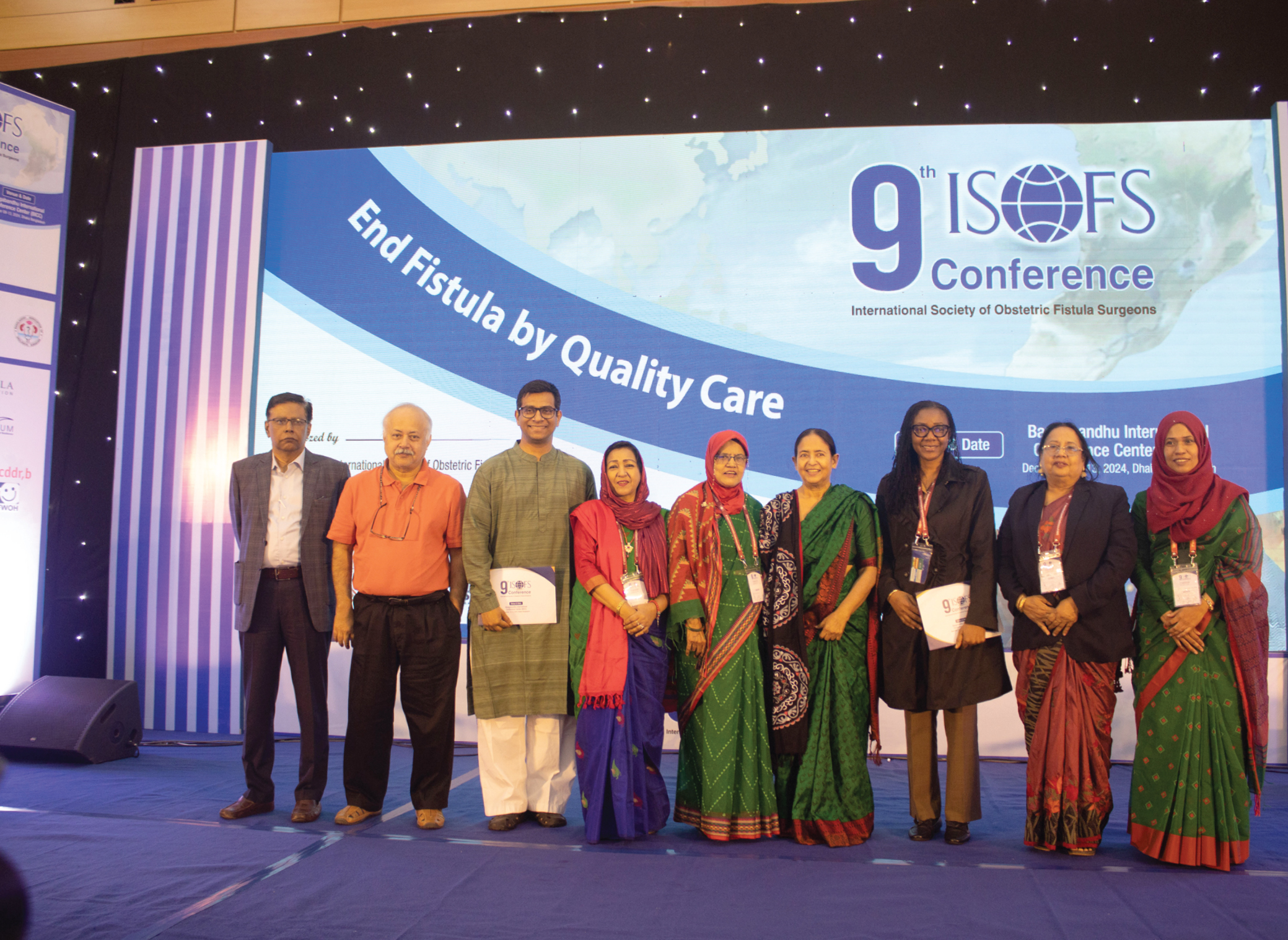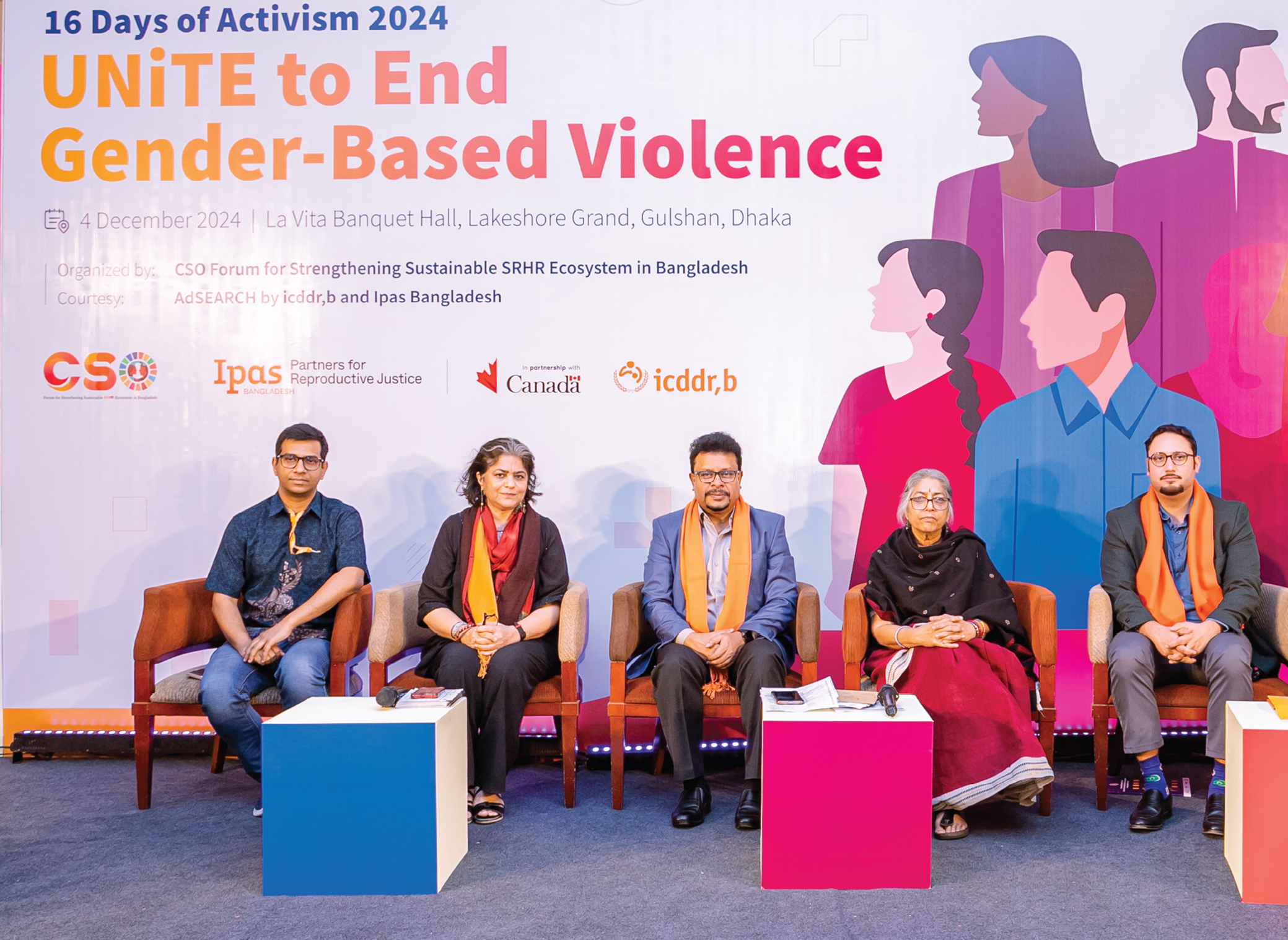Essential Gynaecological Skills Study to Upskill the Non-specialised Health Care Providers
Globally gynaecological health is one of the least prioritised areas of health. A significant gap persists, especially in low-and middle-income countries (LMICs), where gynaecological diseases exact a substantial toll of unacknowledged morbidity, avoidable suffering, and diminished quality of life for women and girls. The global percentage of all the years lost to disability (YLDs) among the women of 15-49 years of age group suffering from Benign Gynaecological Conditions (BGCs) in LMICʼs is 8%, which is twice as high compared to the high-income countries (4%). In addition, there exists a shortage of trained healthcare providers capable of addressing general gynaecological issues, particularly in rural areas of our country.
To bridge the gap in the existing service delivery of Essential Gynaecological services, the Maternal and Child Health Division (MCHD) of icddr,b under the leadership of the Maternal Health Programme of the Directorate General of Health Services (DGHS) of the Ministry of Health and Family Welfare and in collaboration with the Royal College of Obstetricians and Gynaecologists (RCOG) of UK and Obstetrical and Gynaecological Society of Bangladesh (OGSB), WHO, UNFPA, Ipas Bangladesh developed a comprehensive implementation package for improving the Essential Gynaecological Skills (EGS) of non-specialised healthcare providers in Bangladesh. The comprehensive package includes training modules, job aids, a service, referral forms, monthly reporting forms, and a supportive supervision checklist. A health systems approach was adopted to introduce the comprehensive package in two district hospitals and upazila health complex settings at Dijanpur and Kushtia. The implementation research demonstrated strong evidence of acceptability, adoption, feasibility, and utility, which was assessed and evaluated based WHOʼs Implementation Research Framework.
The studyʼs key outcomes were highlighted at the National Dissemination Seminar on 1 April 2024, where key stakeholders engaged in open discussions and display corner exhibited the implementation package materials for the wider audience at icddr,b Sasakawa Auditorium, Dhaka. The seminar commenced with a welcome speech by Dr Quamrun Nahar. Study Co-PI, Dr Sabrina Jabeen presented the results of this implementation research. With overviews on the gynaecological health and services in Bangladesh, the Gynaecological Health Matters (GHM) Bangladesh programme and the OGSB's roles in promoting Gynaecological Health in Bangladesh, respective speakers including Dr Md Azizul Alim, Dr Santanu Achary, and Prof Dr Shahin Rahman Chowdhury delivered their presentations in the dissemination. The panel discussion was arranged with Dr Md. Jahangir Alam Prodhan, Prof. Dr Farhana Dewan, and Prof. Dr Sayeba Akhter as PI of the study Dr Ahmed Ehsanur Rahman moderated the discussion and facilitated the Q&A session. GAC representative, Dr Momena Khatun also provided her remarks, followed by a vote of thanks by Dr Shams El Arifeen.
Major Attendee (chronology as appeared in the news):
Dr Quamrun Nahar, Deputy Project Director of AdSEARCH; Dr Sabrina Jabeen, Assistant Scientist, icddr,b and study Co-PI; Dr Md Azizul Alim, Programme Manager of the Maternal Health Programme at DGHS; Dr Santanu Acharya, UK Clinical Lead at the RCOG; Prof Dr Shahin Rahman Chowdhury, Clinical Lead of the Bangladesh Chapter, OGSB; Dr Md. Jahangir Alam Prodhan, LD (MCRAH) at DGFP; Prof. Dr Farhana Dewan, President of OGSB; Prof. Dr Sayeba Akhter, Former President of OGSB; Dr Ahmed Ehsanur Rahman, Scientist, icddr,b and study PI; Dr Momena Khatun, Health Technical Specialist of FSSP at GAC; Dr Shams El Arifeen, Senior Director & Senior Scientist, icddr,b and Project Director AdSEARCH by icddr,b.

